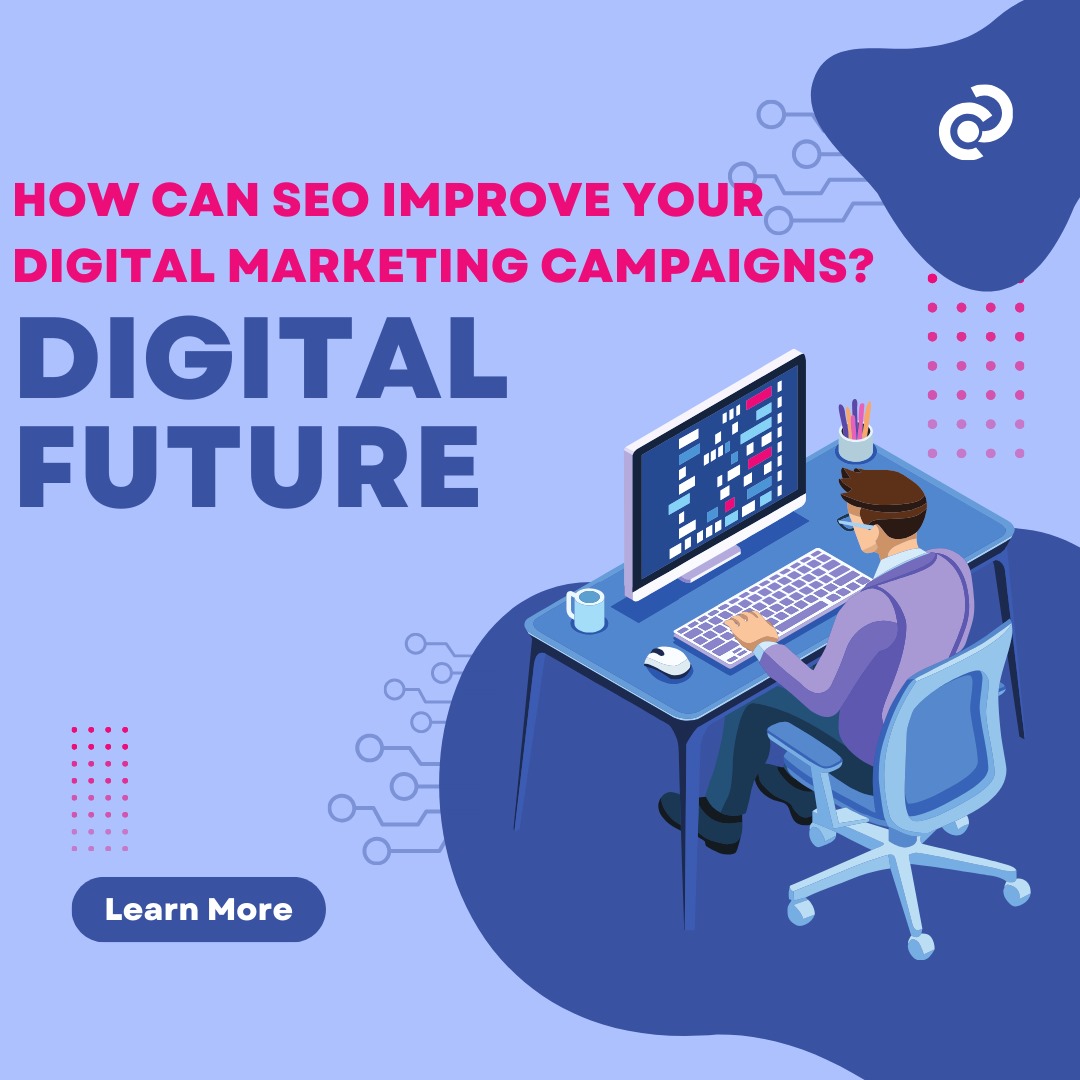In the digital age, where competition for attention is fierce and every click counts, Search Engine Optimization (SEO) plays a critical role in helping businesses stand out online. SEO involves optimizing a website to improve its visibility in search engine results, ultimately driving more organic (non-paid) traffic to the site. This process has become an essential component of any digital marketing strategy, influencing how businesses attract, engage, and convert visitors.
This article explores the profound impact of SEO on digital marketing, focusing on its role in driving traffic, enhancing user experience, increasing conversions, and its evolving nature in an ever-changing digital landscape.
What is SEO and How Does It Work?
SEO is the practice of optimizing a website’s content, structure, and technical aspects to increase its ranking in search engine results pages (SERPs). Search engines like Google, Bing, and Yahoo use complex algorithms to determine the relevance and authority of web pages, which in turn influences how they rank for specific search queries.
The main components of SEO can be broken down into three categories:
- On-page SEO: This refers to optimizing the content and structure of individual web pages. It includes keyword research and placement, optimizing title tags, meta descriptions, header tags, and ensuring content is valuable, relevant, and user-friendly.
- Off-page SEO: This focuses on improving the website’s authority through backlinks (links from other reputable websites) and social signals. The more quality backlinks a website has, the more likely it is to be seen as authoritative and trustworthy.
- Technical SEO: This involves improving the technical aspects of a website, such as site speed, mobile-friendliness, crawlability (ensuring search engines can access and index content), and structured data. A well-optimized website enhances the overall user experience.
The Role of SEO in Digital Marketing
SEO has far-reaching effects on various facets of digital marketing, making it an indispensable tool for businesses. Below are key areas where SEO significantly impacts digital marketing strategies:
1. Increased Organic Traffic
At the heart of SEO is its ability to drive organic traffic to a website. Organic traffic is visitors who arrive at your site via search engines, as opposed to paid ads or social media. Achieving higher rankings in search engine results pages (SERPs) for relevant keywords ensures that your website is visible to users actively searching for your products or services.
Higher rankings typically lead to more clicks. Research indicates that the majority of search engine users click on one of the top 5 search results, with the first result receiving a disproportionate share of clicks. Thus, ranking well for important keywords can significantly increase a website’s visibility and traffic without the need for paid advertisements.
2. Improved User Experience
SEO is not just about keywords and backlinks; it’s also about creating a positive user experience. Search engines like Google prioritize websites that offer a seamless, intuitive experience for users. This includes fast load times, mobile optimization, easy navigation, and high-quality, engaging content.
When businesses focus on improving the user experience (UX), they are essentially optimizing their site for both search engines and visitors. A positive user experience encourages users to stay longer on the site, explore more pages, and ultimately take desired actions, such as making a purchase or filling out a contact form. A well-optimized website that prioritizes user experience is more likely to rank higher, further increasing its chances of attracting organic traffic.
3. Building Brand Credibility and Trust
In the digital world, trust and credibility are paramount. People are more likely to engage with and purchase from brands they perceive as authoritative and reliable. SEO plays a significant role in building this trust. Websites that rank high in search results are often perceived as more credible by users.
SEO strategies, particularly those related to acquiring quality backlinks, are crucial in boosting a website’s domain authority. When other reputable websites link back to your content, it signals to search engines that your site is valuable and trustworthy. Furthermore, creating high-quality, informative, and relevant content can position your brand as an industry authority, earning trust from both users and search engines.
4. Cost-Effective Marketing
One of the major benefits of SEO in digital marketing is that it offers a highly cost-effective way to attract customers. While paid ads (such as Google Ads) can yield quick results, they require ongoing investment. SEO, on the other hand, focuses on driving organic traffic, which, once established, can continue to bring in visitors without continuous spending.
Although SEO requires an initial investment in content creation, technical optimization, and ongoing efforts to maintain rankings, its long-term benefits make it one of the most cost-effective strategies in digital marketing. Moreover, organic search traffic tends to have a higher return on investment (ROI) compared to paid traffic, as users often trust organic results more than ads.
5. Enhancing Local Search Visibility
For businesses targeting local markets, SEO plays an essential role in improving local search visibility. Local SEO involves optimizing a business’s website for location-based searches, helping businesses attract customers in their geographic area. This includes claiming and optimizing a Google My Business profile, ensuring NAP (Name, Address, Phone Number) consistency across the web, and acquiring local backlinks.
As more users rely on mobile devices to search for nearby businesses, local SEO has become increasingly important for brick-and-mortar stores, restaurants, service providers, and other businesses with a physical presence. Appearing in local search results and maps can significantly increase foot traffic and sales.
6. Higher Conversion Rates
SEO is closely tied to conversion optimization. By targeting the right keywords and optimizing landing pages for those keywords, businesses can attract highly relevant visitors who are more likely to convert. For example, targeting long-tail keywords (more specific phrases) can help attract users with a clear intent to make a purchase or inquire about services.
Moreover, SEO efforts like improving website speed, creating compelling calls-to-action (CTAs), and enhancing the mobile experience directly contribute to improving conversion rates. When users land on a well-optimized website that addresses their needs and offers a smooth browsing experience, they are more likely to complete a desired action, whether it’s purchasing a product, signing up for a newsletter, or filling out a contact form.
The Evolving Nature of SEO
The world of SEO is constantly changing. Search engine algorithms are regularly updated to improve search results and ensure that users find the most relevant, high-quality content. This means that businesses must stay up to date with the latest SEO trends and best practices to maintain their rankings.
Some emerging trends in SEO include:
- Voice Search Optimization: With the rise of voice assistants like Siri, Alexa, and Google Assistant, optimizing for voice search is becoming increasingly important. Voice searches are often conversational, and businesses need to adapt their content to match natural language queries.
- Featured Snippets and Zero-Click Searches: Featured snippets (position zero) appear at the top of search results, offering direct answers to user queries. Businesses should optimize their content to appear in these snippets, as it can significantly boost visibility.
- Mobile-First Indexing: Google now indexes websites based on their mobile versions rather than desktop versions. This means that businesses must ensure their websites are fully optimized for mobile devices.
- E-A-T (Expertise, Authoritativeness, Trustworthiness): Google’s emphasis on E-A-T signals that businesses must focus on creating high-quality, authoritative content, particularly for industries like health, finance, and legal.
Conclusion
SEO is a fundamental pillar of digital marketing, influencing everything from website traffic and brand credibility to user experience and conversions. By improving search engine rankings through on-page, off-page, and technical SEO practices, businesses can attract highly relevant organic traffic and achieve long-term success without relying on paid ads. As the digital landscape continues to evolve, businesses must stay agile, adapting to new trends and updates to remain competitive. SEO is not a one-time effort but a long-term strategy that, when executed well, can yield lasting results and significant returns on investment. The impact of SEO on digital marketing is undeniable, making it an indispensable tool for any business seeking to thrive online.




This article does an excellent job of showcasing just how integral SEO has become to a robust digital marketing strategy. The breakdown between on-page, off-page, and technical SEO is clear and practical—it’s a great guide for anyone looking to get their site ranking better. I especially appreciated the focus on enhancing user experience and building trust—those aspects are often overlooked but so critical for long-term growth. Additionally, the section on emerging trends like voice search optimization and featured snippets underscores the need to stay ahead of shifting algorithms and user behaviors.
One small suggestion: perhaps expanding a bit more on how analytics tools can measure the impact of SEO efforts—like tracking keyword rankings, organic traffic sources, and conversion rates—would offer readers actionable insights for evaluating their campaigns.
Thanks for this insightful read! You’ve inspired me to revisit my own site’s SEO strategy in more depth. If anyone’s looking to dive deeper, I’d recommend checking out an Online Digital Marketing Course